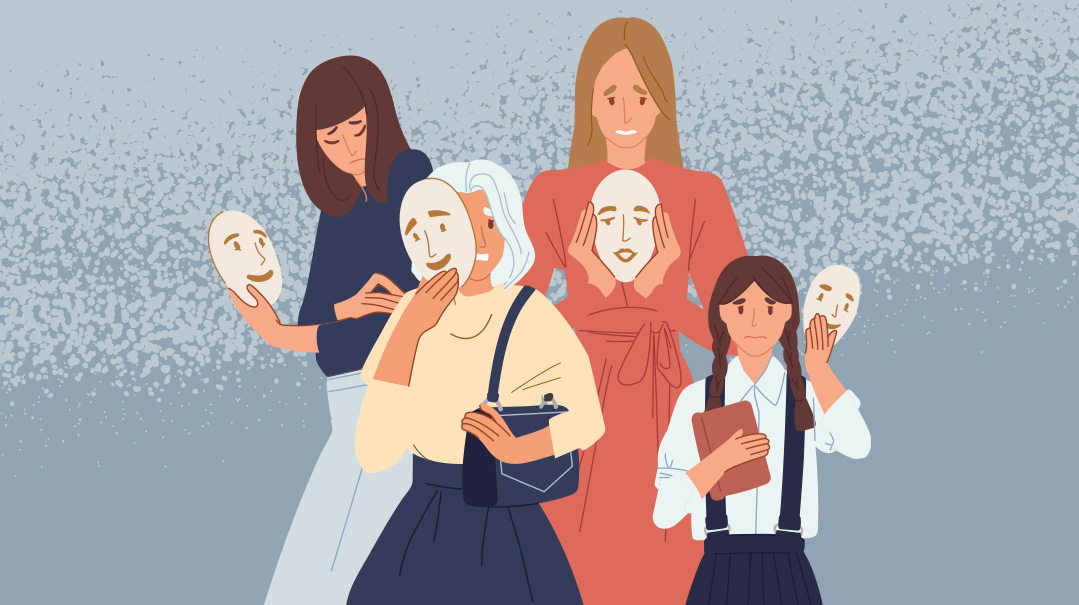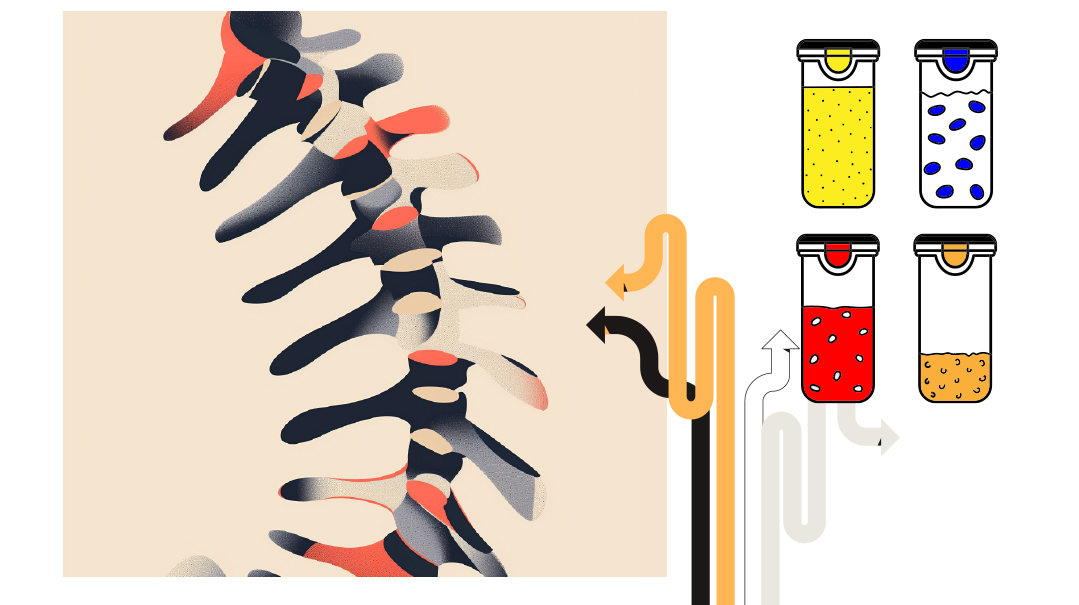Hide and Seek
| February 28, 2023Whether we’re hiding ourselves in the car, hiding our chocolate, or hiding the supermarket bills, the underlying thread is the shame we feel

Hide and Seek
Shira Savit
Many women find themselves hiding while eating things they “shouldn’t” or trying to hide the evidence afterward. “I don’t want anybody to see me eating candy when I’m supposed to be on a diet.” “I binged on chocolate and I’m so ashamed. I hid all the wrappers in the garbage.” Whether we’re hiding ourselves in the car, hiding our chocolate, or hiding the supermarket bills, the underlying thread is the shame we feel.
Ironically, the shame that takes over while we’re engaged in hiding mode commonly triggers us to eat more, because we use food to escape and numb ourselves from these uncomfortable feelings of humiliation.
For more constructive results, instead of trying to get rid of the behavior, we can learn to change our mindset. For example, if a woman is sneaking into her room with licorice so she can have some without the kids noticing, her default thought pattern might read as such: I’m so embarrassed. I don’t want my kids to see me eating candy like this. I feel like a hypocrite.
Alternatively, though, she might choose to be compassionate to herself and try this: I’m having a hard afternoon and I like licorice! I know it’s not the healthiest food, but that’s all right. Right now, I’m choosing to give myself a few minutes alone to enjoy this treat.
The acceptance and empathy in this kind of self-talk provides the antidote to shame, which eliminates the trigger that perpetuates the cycle of continued unwanted eating.
Hiding and costumes are an intrinsic part of Purim. Perhaps another lesson costumes can teach us is that we have the choice to infuse hiding with shame or with celebration. In our Purim costumes, we hide in enjoyment, we hide in pleasure. And at the end of the day, we take off our masks and the person underneath is just as whole and lovable as the day before.
Shira Savit, MA, MHC, INHC is a mental health counselor and integrative nutritionist who specializes in emotional eating, binge eating, and somatic nutrition. Shira works both virtually and in person in Jerusalem.
Next-Level Caring
Sara Eisemann
Due to a printing error, a portion of this piece ran in issue 824. Here, it is reprinted in its entirety.
The most convincing sign that someone genuinely cares for you, is that they seek to understand you. —SJG
I confess, this is not something I always knew. Had you asked me ten years ago how I know that someone cares about me, I might have answered things like, “They are there when I need them”; “There is nothing they won’t do for me”; or “They anticipate my needs and do things to make me happy.” And I would have been right. These are all markers of someone who cares.
But I’ve to come to appreciate the next level of emotional intimacy: the gift of being deeply understood. Some of the most beautiful moments between two people occur when one “gets” the other. Being seen in this way touches something profoundly deep in the soul and is remarkably healing.
The converse is equally true. My clients have taught me that not being understood is the worst kind of pain. Vulnerability is all the rage these days, and everyone is on the bandwagon. But for those who are afraid to try, the reason is always the same. They would prefer to not share and be safe, than to share and risk not being understood.
When we are vulnerable, we are offering up the deepest part of ourselves. If that is not deeply received, the shame that results is staggering. It hurts to have our truth dismissed. It feels as though we are being dismissed, as though the deepest part of us does not exist. And so many people will not risk it. They pay the price of denying themselves true closeness in a relationship in exchange for safety.
We can’t always understand people the way they want to be understood. But when we try, we show that knowing who they really are is important to us. I always recall the way my boys learned the translation of a pasuk in Chumash (Bereishis 18:19): “Ki y’daativ…” — because I know him, and if I know him, it means I love him. “Knowing” in the Chumash is always tied to loving.
If we want to truly connect, we need not only take the time, but to also extend the willingness to see the other as she is and not as we need her to be.
A conversation about how you feel is not supposed to end in an argument.
—Anonymous
Often our own insecurities or defenses get in the way of really understanding. We worry that if we accept another’s perspective, it threatens our own stance. If I get why he’s upset with me, does that mean I’m admitting to doing something wrong? If I hear her viewpoint, does that invalidate mine? But if we can get out of our own way, we can give the gift of true understanding to another and create a connection that touches to the core, allowing the other to feel truly loved and allowing us to truly love.
Sara Eisemann, LMSW, ACSW, is a licensed therapist, directed dating coach, and certified Core mentor.
The Good, the Bad, & the Tension
Dina Schoonmaker
The mishnah in Pirkei Avos (4:2) says, “Hevei ratz l’mitzvah kalah... u’voreiach min ha’aveirah — Run toward an easy mitzvah... and run from an aveirah.” If a person needs to run after a mitzvah, the mitzvah is running away from him. If a person needs to run from an aveirah, that aveirah is chasing him. This leaves us with a fundamental question: Why do we need to run after the good, while the bad pursues us?
The answer is that bechirah can only exist when there are two viable options. As Jews, we’re naturally attracted to good. Hashem evens out the playing field in decision-making by making the good run away from us, and the bad pursue us. This way our decision-making will have the tension of viable choices.
Often, choices that aren’t good for us are very attractive, loudly advertised, and extremely compelling, while good choices are always there but don’t have that same market appeal.
Dina Schoonmaker has been teaching in Michlalah Jerusalem College for over 30 years. She gives women’s vaadim and lectures internationally on topics of personal development.
(Originally featured in Family First, Issue 833)
Oops! We could not locate your form.







